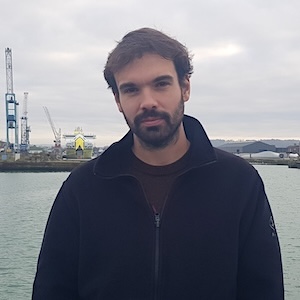Thesis title: The zone and its networks. From Monaco to Monastir, an investigation of marine protected areas in Tunisia.
Supervisors: Fabian Muniesa and Béatrice Cointe
Protected areas, whether marine or terrestrial, have established themselves as the flagship instrument of biodiversity protection policies at the global level. According to the IUCN (International Union for Conservation of Nature), a protected area is a clearly defined geographical area, recognized, dedicated and managed, by any effective means, legal or otherwise, in order to ensure the long-term conservation of nature as well as the ecosystem services and cultural values associated with it. The protected area therefore appears as a spatial device, a kind of zoning. The case of marine protected areas (MPAs) in Tunisia calls into question this definition, which characterizes a protected area, primarily as a defined geographical area. In Tunisia, no MPAs have yet been officially created, and no legal text establishes their perimeter. However, areas are funded by international actors, co-management teams have been established, and scientific and species monitoring activities have been carried out. Unlike the often-criticized “paper parks,” MPAs in Tunisia are more akin to “paperless areas.” This doctoral thesis seeks to answer the following question: how are such areas made governable? By bringing into dialogue the geography and anthropology of conservation with actor-network theory, the thesis shows that these areas must be considered as networks. These networks are made up of both human and institutional actors (funders from Northern countries, cooperation actors, consultancies, NGOs, intergovernmental organizations) and non-human entities (animal species, databases, management plans, reporting documents, etc.) that circulate in transnational spaces, assemble and end up making Tunisian MPAs tangible and governable. Based on a multi-sited study conducted among “nature professionals” involved in the development of Tunisian and Mediterranean MPAs – field managers, coastal agencies, donors, and design offices – the thesis examines several technologies and instruments that make MPAs governable: the development of “co-management”, “sustainable” financing, spectacular mediations of the sea turtle, the conduct of naturalist studies, and the development of a database of Mediterranean MPAs. The thesis describes the work required to deploy these instruments as “diplomatic:” they involve both a “science of negotiations” in order to develop a shared language between various entities, and a form of geopolitics, with MPAs, marginal zones, caught in dynamics of territorial appropriation.
Publications
Foutrel Clément (2023). Ève Chiapello, Antoine Missemer et Antonin Pottier (dir.), Faire l’économie de l’environnement, Presses des Mines, 2020. Compte-rendu de lecture. Sociologie du travail [En ligne], 65(3). Doi: 10.4000/sdt.43826


